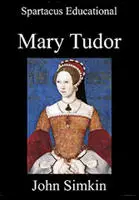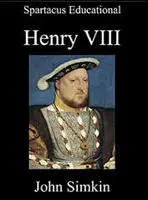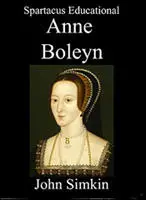Charles de Marillac
Charles de Marillac, the third son of Guillaume de Marillac, a nobleman, was born in France in about 1510. In his youth he was a supporter of Martin Luther and was forced to leave Paris. However, he used the influence of his cousin, Jean de la Forêt, to become the French ambassador at Constantinople. In 1538 he was sent to represent King François I at the court of Henry VIII. (1)
Marillac replaced Louis de Perreau, Sieur de Castillon. It has been claimed by Jasper Ridley that he was a much less intelligent and experienced diplomat than his predecessor. (2) Marillac found himself in competition with Eustace Chapuys, the representative of King Charles V. Chapuys attempted to persuade Henry to allow his daughter, Mary to marry a Roman Catholic prince in Europe. This came to an end when Jane Seymour gave birth to Edward. Chapuys enjoyed the much greater advantage of having Marillac's confidential secretary, Jean de Hons, in his pay. (3)
Charles de Marillac was highly critical of Henry VIII. "Marillac wrote that he had heard from reliable sources that Henry's leg and his intemperate eating and drinking made him irrascrible and unpredictable, so that he often had a completely different opinion after dinner from what he had had in the morning. According to Marillac, he cursed his subjects, and threatened to impose taxes which would make them so poor that they would not dare to rebel against him." (4)
Charles de Marillac & Anne of Cleves
Henry VIII told Charles de Marillac that as he had only one son he had decided to marry Anne of Cleves for the sake of children, and considered he could do no better than Anne, who at twenty-four was "of convenient age", in sound health, and of good stature. (5) On 21st July, 1540, Marillac was reporting that the marriage was over because of Henry's relationship with Catherine Howard: "The Queen appears to make no objection. The only answer her brother's ambassador can get from her is that she wishes in all things to please the King her lord, bearing testimony of his good treatment of her, and desiring to remain in this country. This, being reported to the King, makes him show her the greater respect." (6)
Marillac's biographer, Robert Knecht, has pointed out that he reported on Henry's unsuccessful marriage to Anne and the downfall of Thomas Cromwell: "The highly informative dispatches which Marillac sent to his government contain a lively account of Henry's first encounter with his new queen, Anne of Cleves, as well as a sympathetic portrait of Mary Tudor, whose hand Marillac sought for the duc d'Orléans. He also witnessed the overthrow of Thomas Cromwell. These dispatches convey a vivid picture of Henry VIII's increasingly tyrannical ways." (7)
On 17th January, 1541, Henry VIII ordered the arrest of Thomas Wyatt and Ralph Sadler. Both men had been close friends of Thomas Cromwell and were seen as religious reformers. The following month, Sir John Wallop, the conservative former ambassador to France, was also arrested. Charles de Marillac predicted a civil war in England: "There could be no worse war than the English carry on against each other... For after Cromwell had brought down the greatest of the realm... now others have arisen who will never rest till they have done as much to all Cromwell's adherents." (8)
Catherine Howard
Charles de Marillac also reported on Henry's marriage to Catherine Howard. In June 1541 Henry took Catherine on a tour of the Northern counties. Although he had been power for 32 years he had not visited this part of England that made up a third of his kingdom. He took with him an army of 5,000 men. Progress was slow as it was a very wet summer. Marillac reported that "the roads leading to the North... have been flooded and the carts and baggage could not proceed without great difficulty." (9)
In November 1541 Henry also gave orders that Catherine was to be confined to her apartments with just Jane Boleyn (Lady Rochford) in attendance. Eustace Chapuys told Charles de Marillac that she was refusing to eat or drink anything, and that she did not cease from weeping and crying "like a madwoman, so that they must take away things by which she might hasten her death". (10)
The trial of Francis Dereham and Thomas Culpeper began on 1st December, 1541 in Westminster Hall. Dereham was charged with "presumptive treason" and of having led the Queen into "an abominable, base, carnal, voluptuous and licentious life". He was accused of joining the Queen's service with "ill intent". It was claimed that Dereham once told William Damport that he was sure he might still marry the Queen if the King were dead. Under the 1534 Treason Act, it was illegal to predict the death of the King. (11)
Culpeper was accused of having criminal intercourse with the Queen on 29th August 1541 at Pontefract, and at other times, before and after that date. During the trial Culpeper changed his plea to guilty. Dereham continued to plead his innocence but both men were found guilty. Thomas Howard, the Duke of Norfolk, sentenced them to be drawn on hurdles to Tyburn "and there hanged, cut down alive, disembowelled, and, they still living, their bowels burnt; the bodies then to be beheaded and quartered". (12)
Charles de Marillac reported that Culpeper especially deserved to die, even though he did not admit to having full intercourse with Catherine, "for he confessed his intention to do so, and his confessed conversations, being held by a subject to a queen, deserved death". Marillac explained that Henry had "changed his love for the Queen into hatred, and taken such grief at being deceived, that of late it was thought he had gone mad". Henry also suggested that she was such a "wicked woman" that she "should have torture in her death". (13)
After the execution of Catherine Howard, Marillac tried in vain to reconcile Henry VIII and Anne of Cleves, but when England had decided to join the emperor in a new war against France, Marillac's embassy ended; he sent his last dispatch from London in September 1542, but was detained as a hostage until April 1543.
Return to Paris
According to Robert Knecht: "In reward for his services, he was made a councillor of the parlement of Paris. He also received the abbey of Mas, in Gascony (October 1540), and that of St Père de Melun (December 1541). In October 1541 he became a maître des requêtes de l'hôtel. Little is known about Marillac's activities in the four years after his return from London, but he apparently managed the household of the dauphin, Henri. Under King Henri II, Marillac became resident ambassador at the imperial court in Brussels, whence he reported on events in England, notably opposition to the rule of Protector Somerset and his fall from power. At the same time, he promoted French interests beyond the Rhine. Meanwhile, in June 1550, he became bishop of Vannes." (14)
Charles de Marillac died on 2nd December 1560.
| Spartacus E-Books (Price £0.99 / $1.50) | ||||||
|---|---|---|---|---|---|---|
Primary Sources
(1) Robert Knecht, Charles de Marillac : Oxford Dictionary of National Biography (2004-2014)
He then became resident ambassador at Henry VIII's court, his mission coinciding with a rapprochement between François I and the emperor Charles V which was viewed with apprehension by Henry. The highly informative dispatches which Marillac sent to his government contain a lively account of Henry's first encounter with his new queen, Anne of Cleves, as well as a sympathetic portrait of Mary Tudor, whose hand Marillac sought for the duc d'Orléans. He also witnessed the overthrow of Thomas Cromwell. These dispatches convey a vivid picture of Henry VIII's increasingly tyrannical ways. He describes them as three ‘plagues’: insatiable covetousness, distrust and fear, and light-headedness and inconstancy.
After Katherine Howard's execution, Marillac tried in vain to reconcile Henry VIII and Anne of Cleves, but when England had decided to join the emperor in a new war against France, Marillac's embassy ended; he sent his last dispatch from London in September 1542, but was detained as a hostage until 1 April 1543.
(2) Jasper Ridley, Henry VIII (1984) page 349
Marillac wrote that he had heard from reliable sources that Henry's leg and his intemperate eating and drinking made him irrascrible and unpredictable, so that he often had a completely different opinion after dinner from what he had had in the morning. According to Marillac, he cursed his subjects, and threatened to impose taxes which would make them so poor that they would not dare to rebel against him; and he accused his counsellors of disloyalty, saying that they had made him get rid of Cromwell, who was the best servant that he had ever had. But Marillac's "reliable" informants were often very unreliable. He was a much less intelligent and experienced diplomat than his predecessor, Louis de Perreau Castillon.
(3) Charles de Marillac, report to François I (21st July, 1540)
The Queen appears to make no objection. The only answer her brother's ambassador can get from her is that she wishes in all things to please the King her lord, bearing testimony of his good treatment of her, and desiring to remain in this country. This, being reported to the King, makes him show her the greater respect.
Student Activities
Henry VIII (Answer Commentary)
Henry VII: A Wise or Wicked Ruler? (Answer Commentary)
Henry VIII: Catherine of Aragon or Anne Boleyn?
Was Henry VIII's son, Henry FitzRoy, murdered?
Hans Holbein and Henry VIII (Answer Commentary)
The Marriage of Prince Arthur and Catherine of Aragon (Answer Commentary)
Henry VIII and Anne of Cleves (Answer Commentary)
Was Queen Catherine Howard guilty of treason? (Answer Commentary)
Anne Boleyn - Religious Reformer (Answer Commentary)
Did Anne Boleyn have six fingers on her right hand? A Study in Catholic Propaganda (Answer Commentary)
Why were women hostile to Henry VIII's marriage to Anne Boleyn? (Answer Commentary)
Catherine Parr and Women's Rights (Answer Commentary)
Women, Politics and Henry VIII (Answer Commentary)
Cardinal Thomas Wolsey (Answer Commentary)
Historians and Novelists on Thomas Cromwell (Answer Commentary)
Martin Luther and Thomas Müntzer (Answer Commentary)
Martin Luther and Hitler's Anti-Semitism (Answer Commentary)
Martin Luther and the Reformation (Answer Commentary)
Mary Tudor and Heretics (Answer Commentary)
Joan Bocher - Anabaptist (Answer Commentary)
Anne Askew – Burnt at the Stake (Answer Commentary)
Elizabeth Barton and Henry VIII (Answer Commentary)
Execution of Margaret Cheyney (Answer Commentary)
Robert Aske (Answer Commentary)
Dissolution of the Monasteries (Answer Commentary)
Pilgrimage of Grace (Answer Commentary)
Poverty in Tudor England (Answer Commentary)
Why did Queen Elizabeth not get married? (Answer Commentary)
Francis Walsingham - Codes & Codebreaking (Answer Commentary)
Codes and Codebreaking (Answer Commentary)
Sir Thomas More: Saint or Sinner? (Answer Commentary)
Hans Holbein's Art and Religious Propaganda (Answer Commentary)
1517 May Day Riots: How do historians know what happened? (Answer Commentary)
References
(1) Robert Knecht, Charles de Marillac : Oxford Dictionary of National Biography (2004-2014)
(2) Jasper Ridley, Henry VIII (1984) page 349
(3) C. S. L. Davies, Eustace Chapuys : Oxford Dictionary of National Biography (2004-2014)
(4) Jasper Ridley, Henry VIII (1984) page 349
(5) Alison Weir, The Six Wives of Henry VIII (2007) page 390
(6) Charles de Marillac, report to François I (21st July, 1540)
(7) Robert Knecht, Charles de Marillac : Oxford Dictionary of National Biography (2004-2014)
(8) Charles de Marillac, report to François I (18th January, 1541)
(9) Charles de Marillac, report to François I (June, 1541)
(10) Charles de Marillac, report to François I (November, 1541)
(11) Alison Plowden, Tudor Women (2002) page 102
(12) Alison Weir, The Six Wives of Henry VIII (2007) page 470
(13) Charles de Marillac, report to François I (December, 1541)
(14) Robert Knecht, Charles de Marillac : Oxford Dictionary of National Biography (2004-2014)




